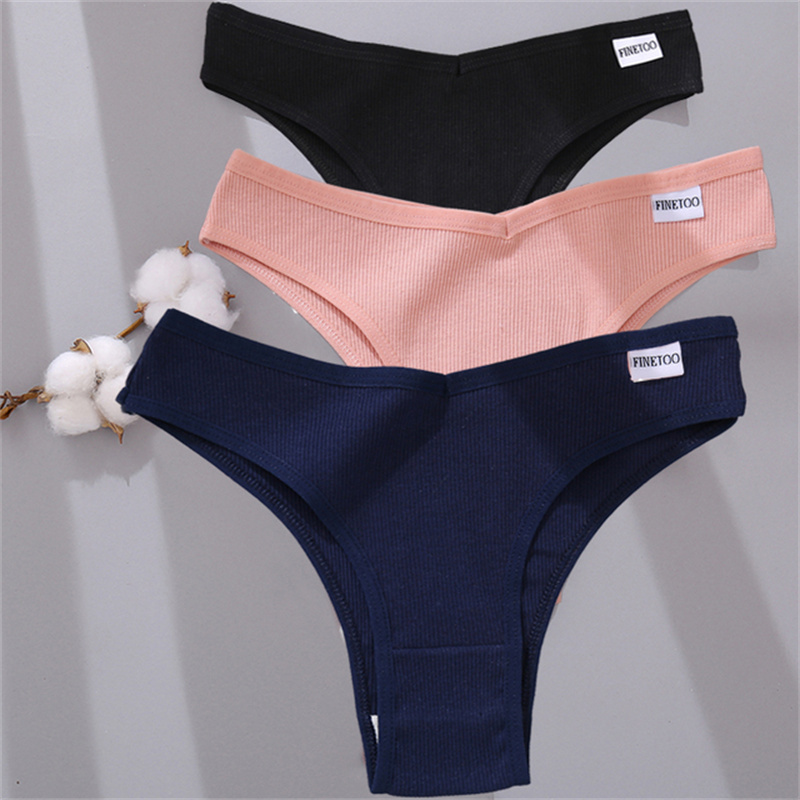The Importance of Organic Cotton in Underwear
Organic cotton underwear plays a pivotal role in sustainable fashion. Its benefits extend beyond comfort and aesthetics. Using organic cotton supports a cleaner, greener environment. This textile avoids harmful pesticides and chemicals. Conventional cotton often entails chemical-heavy cultivation. Pesticides and synthetic fertilizers seep into the soil and water. This contamination harms ecosystems and endangers health. Organic cotton farming uses natural processes. It promotes soil health and biodiversity. Environmentally mindful consumers prefer organic fabrics for their intimate wear.

Farmers grow organic cotton with respect for nature. They avoid genetically modified seeds and toxic inputs. Consumers wearing organic cotton underwear thus support ethical farming practices. Moreover, organic cotton farming ensures the well-being of farm workers. They face reduced exposure to health risks. In essence, choosing organic cotton underwear casts a vote for a sustainable future. It is not just a personal choice, but a collective move towards a better environmental legacy.
Key Benefits of Organic Cotton Underwear
When shopping for underwear, your choice of fabric is crucial. Organic cotton underwear offers distinct benefits. Here are key advantages to consider:
- Skin-Friendly Comfort: Organic cotton fabric is gentle on the skin. It is free from harsh chemicals, making it ideal for sensitive skin.
- Breathability: This natural material allows air to circulate, reducing sweat and discomfort. It offers a feeling of freshness throughout the day.
- Durability: Underwear made from organic cotton is often more durable. It withstands washing and wears over time. You get longer-lasting comfort.
- Health Benefits: Without toxic pesticides, organic cotton poses less health risk. It is better for both your skin and overall well-being.
- Ethical Choice: By picking organic cotton, you support ethical practices. This includes fair labor conditions and fewer health hazards for farmers.
- Environmental Friendly: Organic cotton farming minimizes water pollution. It also preserves soil quality. Thus, you contribute to a healthier planet.
Every point here ties back to the core value of sustainability. Opting for organic cotton underwear aligns personal health with environmental responsibility. It is a simple step with a meaningful impact.
How to Identify Genuine Organic Cotton Underwear
Choosing the right organic cotton underwear involves more than just looking at labels. With a market flooded with so many options, it’s crucial to be able to identify genuine organic cotton products from those that are not. Here’s what to look for to ensure you’re getting the real deal:
- Check the Certification: Authentic organic cotton underwear will have certification. Look for standard seals like Global Organic Textile Standard (GOTS) or Organic Content Standard (OCS).
- Read the Labels Carefully: Don’t rely solely on the product description. Scrutinize the labels for specific language that indicates genuine organic cotton, such as ‘100% organic’ or ‘certified organic’.
- Feel the Fabric: The texture of organic cotton is usually more natural and less synthetic than conventional cotton. Trust your touch.
- Examine the Color: Organic cotton often comes in natural or muted tones because it’s not treated with harsh chemicals and bleach.
- Research the Brand: Choose brands that have a reputation for sustainable practices and those known for their commitment to organic products.
- Price Point: Genuine organic cotton underwear may be priced slightly higher due to the ethical manufacturing processes involved.
By paying attention to these details, you can make an informed choice that supports your comfort, health, and sustainability values.

The Environmental Impact of Organic Cotton vs. Traditional Cotton
When considering the environmental impact, organic cotton underwear outshines traditional cotton in several ways:
- Reduced Chemical Use: Traditional cotton cultivation relies heavily on chemicals. It uses about 16% of the world’s insecticides and 7% of pesticides. Organic cotton farming, on the other hand, eliminates these toxic substances. This significantly reduces environmental pollution.
- Water Conservation: Organic cotton uses less water compared to conventional methods. Traditional cotton farming is water-intensive, whereas organic cotton improves soil’s water retention, reducing the overall irrigation requirement.
- Soil Health: Organic cotton contributes to healthier soil. Crop rotation and natural fertilization methods prevent soil degradation. Traditional practices often leave soil depleted and less fertile over time.
- Biodiversity: By avoiding pesticides, organic cotton fields support more wildlife. They become a haven for beneficial insects and birds, increasing biodiversity.
- Lower Carbon Footprint: Organic cotton farming generally has a lower carbon footprint. Fewer chemicals and lower energy inputs during cultivation lead to reduced greenhouse gas emissions.
Every choice of organic cotton underwear represents a step towards a less environmentally damaging clothing industry. By choosing organic over traditional cotton, consumers can help reduce the harmful impacts on the planet. Opting for organic cotton is not just a personal preference; it’s an environmental statement.
Top Brands for Organic Cotton Underwear
When exploring options for organic cotton underwear, brand reputation matters. Top brands not only ensure quality but also align with sustainable values. These brands prioritize the environment and ethical practices. Here are some well-regarded brands in the organic cotton underwear market:
- PACT: Renowned for its commitment to organic cotton and fair trade, PACT offers a range of comfortable and stylish underwear.
- Organic Basics: This brand integrates eco-friendly materials with modern design. Their products showcase simplicity and sustainability.
- Boody: Boody’s underwear line is known for using organic bamboo, which is skin-friendly and highly breathable.
- People Tree: A pioneer in ethical fashion, People Tree provides a variety of organic cotton underwear that is both ethical and comfortable.
- Thought: With a focus on natural materials, Thought’s underwear is crafted to be gentle on skin and the environment.
Choosing any of these brands means making a responsible choice. You support ethical production and sustainable processes. Remember to research and stay informed. Brands often update their practices and products. By staying up-to-date, you ensure that your choices align with your values for sustainability and comfort.
Caring for Your Organic Cotton Underwear
Proper care is vital to extend the life of your organic cotton underwear. Here’s how to keep them in great condition:
- Wash with Care: Use a gentle, eco-friendly laundry detergent. Cold water is best to preserve fibers and save energy.
- Avoid Bleach and Strong Chemicals: These can break down the organic cotton fibers and affect fabric integrity.
- Opt for Natural Drying: Whenever possible, air dry your underwear. This prevents shrinkage and energy use from tumble drying.
- Separate Colors: Keep whites and colors separate to avoid color bleeding which can be harder to remove without harsh chemicals.
- Gentle Cycle is Key: If using a washing machine, choose a gentle cycle to reduce wear and tear.
- Fold or Hang Properly: Store your underwear flat or hang them to retain shape and prevent stretching.
Remember, taking care of your organic cotton underwear not only prolongs their lifespan but also sustains their benefits for your skin and the environment. Always refer to the manufacturer’s care instructions for the best results.

Cost Comparison: Organic Cotton Underwear vs. Conventional Options
Choosing underwear involves not only comfort but also cost. Organic cotton underwear and conventional options differ in price. Here’s what affects the price tags:
- Material Quality: Organic cotton is higher quality and costs more. Conventional cotton may be cheaper, but it lacks organic quality.
- Production Standards: High ethical standards in organic production raise costs. Traditional methods often cost less, being less strict.
- Certifications: Certifications like GOTS add to the cost of organic underwear. No such costs apply to conventional cotton.
- Durability: Organic underwear often lasts longer, which can save money over time. Cheaper options might wear out faster, needing replacement.
- Health Costs: Investing in organic can mean fewer health issues from chemicals. This might save on medical expenses not reflected in the tag price.
- Environmental Savings: The price of organic includes environmental benefits. These savings are hard to value but crucial for a sustainable future.
While organic options may seem pricier, they offer long-term savings. Quality, health, and ethical practices justify the cost. In contrast, conventional underwear is less up front but may carry hidden costs. These include environmental harm and the potential for health risks. Consider these factors when weighing the true cost of your underwear choices.
The Future of Underwear: Sustainability and Organic Materials
The underwear industry is evolving, embracing sustainability and organic materials like never before. Organic cotton underwear signifies this shift towards a more sustainable future. Here, we’ll delve into what the future holds for eco-conscious intimates and highlight the significance of continued innovation in organic materials.
- Sustainable Practices: Brands are increasingly adopting sustainable practices from sourcing to production. This means more transparency and responsibility in how underwear is made.
- Innovative Materials: Beyond organic cotton, the search for new eco-friendly materials is on. From recycled fabrics to advanced natural fibers, innovation is key to greener underwear.
- Consumer Demand: There’s a growing demand for ethical and sustainable products. As consumers become more informed, their choices will shape the market.
- Regenerative Agriculture: Organic cotton supports regenerative farming, which can heal the land. This method goes beyond sustainability, it actively improves ecosystems.
- Technological Advances: Technology plays a big role in creating sustainable underwear. From water-saving dyeing processes to energy-efficient manufacturing, high-tech solutions are in play.
- Educational Outreach: More brands invest in educating the public about sustainability in underwear. Informed decisions by consumers can lead to a larger impact on the industry.
- Commitment to Quality: The future will likely not compromise on quality for sustainability. Organic cotton underwear will continue to be both luxurious and environmentally friendly.
The trend towards organic cotton underwear marks a commitment to a healthier planet and healthier skin. As we look ahead, sustainable underwear isn’t just a choice; it’s becoming the standard. The industry’s future relies on innovation, ethical practices, and consumers who prioritize planet over profit.